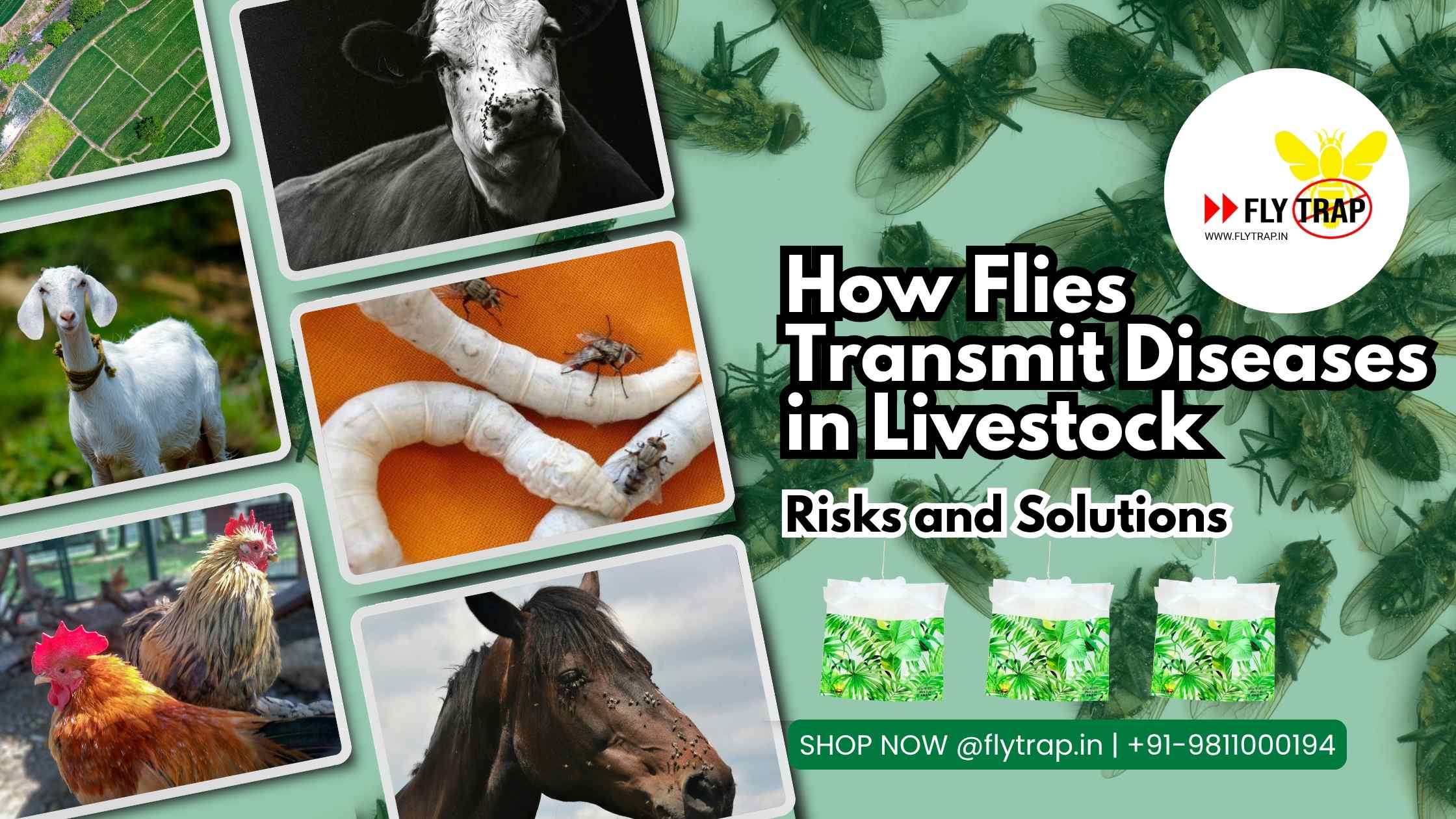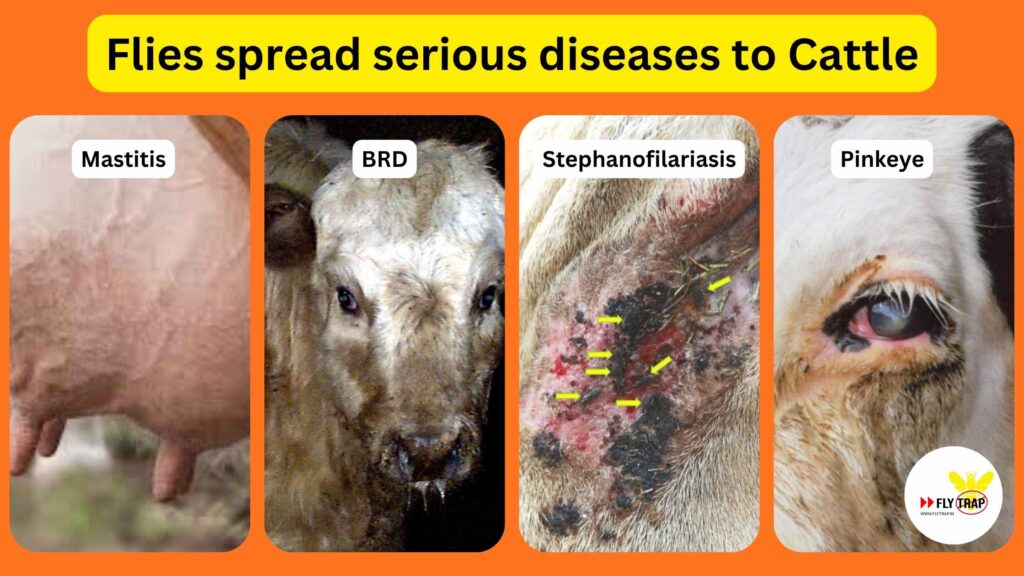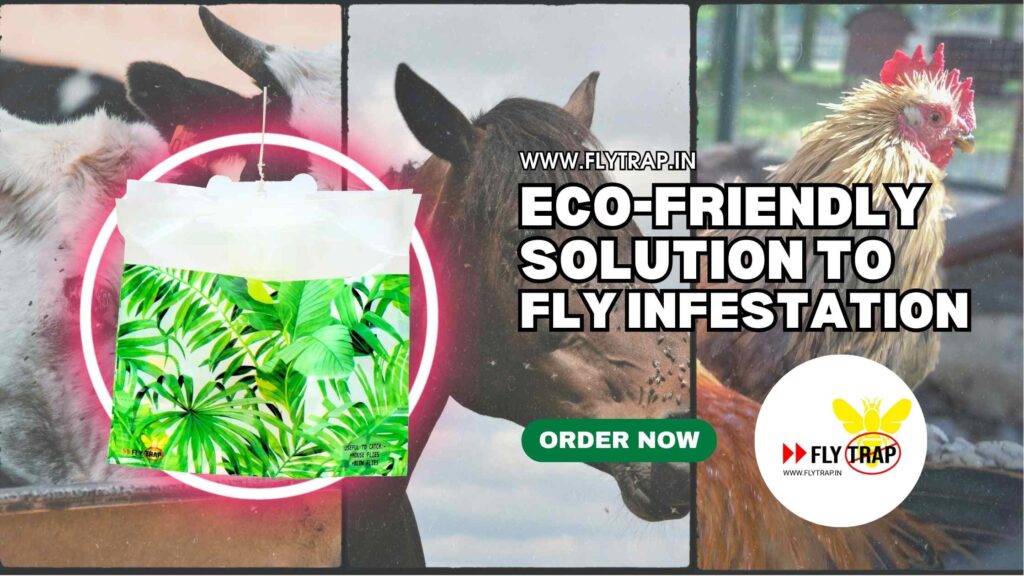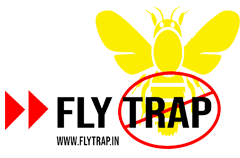
Livestock farming in India plays a vital role in rural livelihoods and the national economy. India contributes to approximately 25% of the total milk production in the world. However, flies are a continuous threat to the sector. Species like houseflies, face flies, horn flies, and stable flies, are proven vectors that spread bacteria, viruses, and parasites among cattle, poultry, and other farm animals. In this article, we will discuss about how flies transmit diseases in livestock, what are the solutions at hand, and why we feel there is a need of awareness among the Indian farmers about organic solutions available.
Flies always have been neglected when it comes to pest control. Due to this negligence, a number of serious diseases spread in the livestock sector. The sector has faced losses due to this – both economic and of life. Let us discuss what are the major diseases and the role of flies.
Key Disease-Transmitting Flies Affecting Livestock in India

BRD caused by House flies (Musca domestica):
Flies are common pests breeding in manure and waste, carrying over 65 pathogens including Salmonella, E. coli, and agents causing bovine respiratory disease (BRD). These flies mechanically and biologically transmit bacteria contaminating feed, water, and wounds.
BRD primarily affects the affects the respiratory system of cattle, especially young calves and weaned stock. It is often called “shipping fever” because it frequently develops within 4 weeks after cattle are transported, grouped, or exposed to stressful conditions. In the early stages, the symptoms are nasal discharge or coughing which is challenging to detect. As the infection progresses, lung damage leads to pus, inflammation, and scarring, reducing oxygen intake. If untreated, it causes chronic pneumonia and can be fatal.
Now, flies causes stress, which is one of the common factors of low immunity which results in BRD becoming fatal in livestock.
Mastitis Caused by Stable flies (Stomoxys calcitrans):
Stable flies are about the size of house flies but have a piercing proboscis used to penetrate skin for blood meals. They most often bite the legs and lower body, causing discomfort. Stable flies are direct vectors of mastitis-causing bacteria such as Staphylococcus aureus, Escherichia coli, and Klebsiella pneumoniae.
Mastitis is a common but severe inflammatory disease affecting mammary gland or udder tissue in dairy cattle. Symptoms are swelling, redness, heat; then pain and discomfort in mammary glands. This reduces the milk yield. Then comes fever, loss of appetite and in advanced cases, pus in the udder. This lead to toxemia or even death.
Female stable flies lay egg in decaying vegetation mixed with animal waste. This makes farm environments ideal breeding sites.
Stephanofilariasis Caused by Horn flies (Haematobia irritans):
Horn flies are small, blood-feeding flies that primarily infest cattle. Both males and females feed multiple times a day causing pain, irritation, and stress in the affected animals leading to lower productivity. Not only they mechanically transmit mistitis-causing bacteria (Staphylococcus aureus) but are vectors of the stephanofilariasis-causing bacteria. It is a skin disease occurring mainly on the belly, scrotum, prepuce, and udder. Other than that, hornflies are mechanical vectors of pathogens causing anaplasmosis and anthrax.
Pinkeye Caused by Face flies (Musca autumnalis):
Face flies feed on ocular secretions of cattle, spreading Moraxella bovis, the bacterium causing pinkeye, a contagious and painful eye disease that lowers productivity. Pinkeye is a highly contagious ocular infection. Face flies spread this bacterium by feeding on eye and nasal secretions. They are responsible of rapid bacterial transmission across herds.
Economic and Health Impact on Indian Livestock Farms:
Fly infestations lead to decreased weight gain (up to 20%), lower milk yields, and increased
veterinary expenses. Stable flies alone cause global livestock industry losses exceeding $2
billion yearly due to their feeding and disease transmission activity. Pinkeye outbreaks further
add to economic burdens with treatment costs and production setbacks. Flies increase animal
stress, reduce feed efficiency, and perpetuate infectious disease cycles, severely affecting
farmer income and food security.
Effective Solutions and Fly Control for Indian Farms
Apart from rigorous sanitation to reduce breeding sites, which is often neglected, employing mechanical control methods such as fly traps and baits are appropriate for Indian farming conditions. Instead of heavily relying on chemical-based insecticides, organic solutions are to be explored. Using insecticides is a short term solution as flies evolve and become resistant to chemicals quickly.
We have come up with an organic no-brainer solution to fly infestation – Organic Fly Trap.

Our fly traps are fully organic and non-toxic and poses no threat to the livestock, humans or the environment. The design is compact and easy to use. Unlike other bulky or electric products, our fly traps only require a little water and sunlight to activate within 24-48 hours. Hang it outside your shed or in the area where the fly infestation is the highest. A single fly trap work for 30 days or until it is full. And once, it is full, you can close it and toss it responsibly in a trash can. As it is made of eco-friendly materials, no harm is done to the environment.
Our fly traps consists of a bait inside that dissolves in water and a bag to trap the flies. The bait is patented in USA and the bag is made in India. Flytrap.in’s organic traps not only reduce disease transmission risks but also improve overall farm hygiene and productivity. This proven, non-toxic solution represents a vital step toward safer, more productive, and environmentally conscious livestock and crop management.
You can buy the product here, and for bulk orders, contact us at +91-9811000194.
